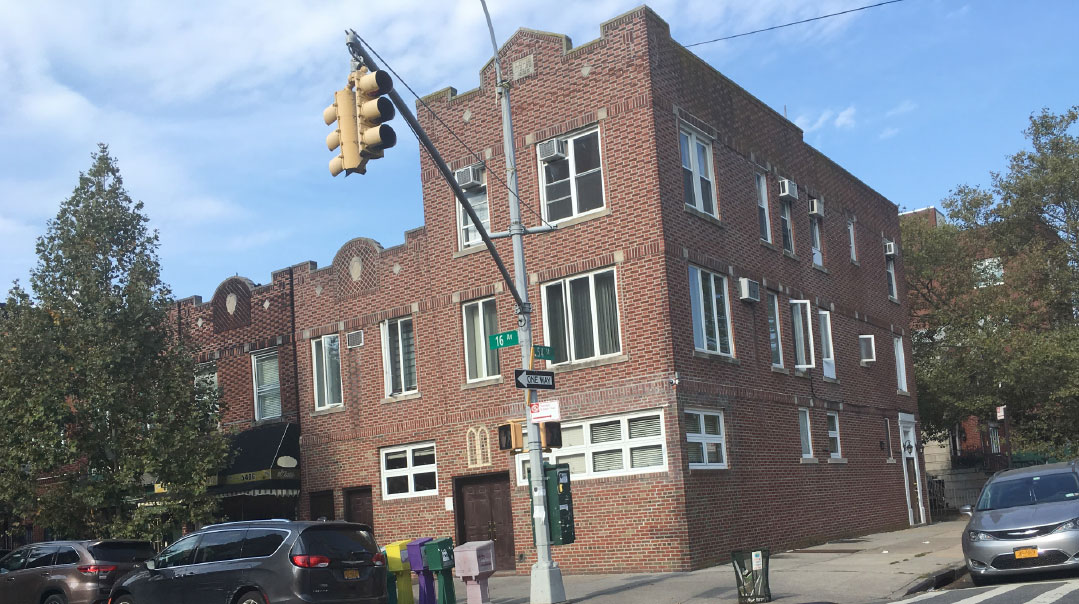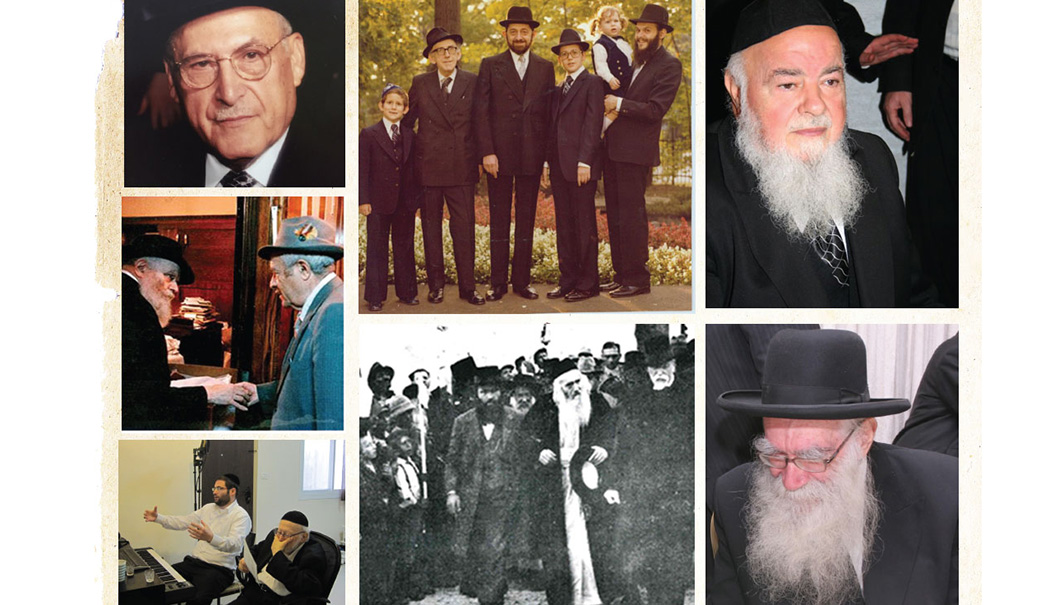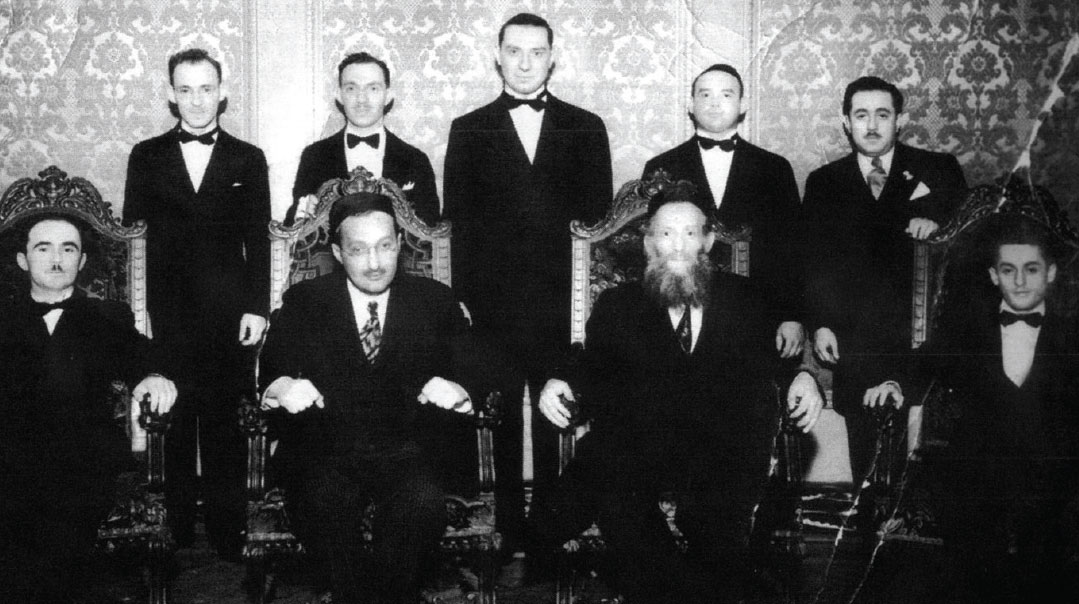If I Could Ask You One Question

If you could ask a single special ancestor of yours to address one puzzle, dilemma, or question that you face, who would you ask and which life experience would you tap?
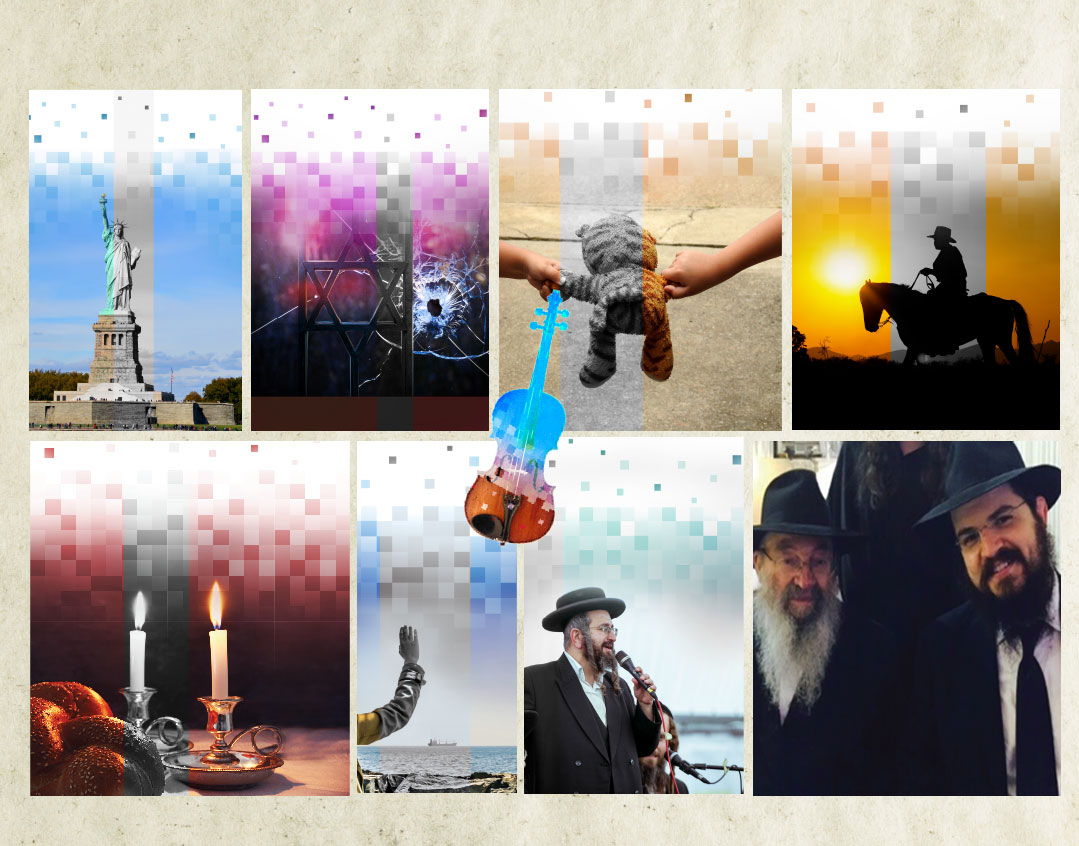
Is Now the Time?
Rabbi Ron Yitzchok Eisenman

To my Zayde, Rav Avraham Shlomo Zalman Zoref of Lithuania/Jerusalem,
I am turning to you across miles and centuries. I know my reality as a rav in New Jersey of 2019 is eons away from yours as a talmid of the Vilna Gaon who traveled from Lithuania to Jerusalem at the beginning of the 19th century. But I feel that you, perhaps more than anyone else, can understand my dilemma.
Zayde, I am currently a rav in Passaic, New Jersey.
With siyata d’Shmaya, the shul has grown and we have multiple minyanim a day. Our city has become a true makom Torah with numerous yeshivos, kollelim, batei medrash, and shuls. All of us feel relatively safe here as there is little overt anti-Semitism. Indeed, all over America, there are many Torah communities that are growing and flourishing. In several months there is a plan for a grand Siyum HaShas in an arena in which will gather almost 100,000 frum Yidden all in one place.
If all this is so wonderful, why am I writing to you?
Zayde, I am writing because I am conflicted.
It is true that the Torah community in Passaic, in particular, and the country, in general, has grown beyond anyone’s expectations and, baruch Hashem, shows no sign of letting up. Nevertheless, there seem to be dark clouds forming slowly on the horizon.
(Excerpted from Linked, Succos 5780)
How Did You Create That Love?
Zivia Reischer
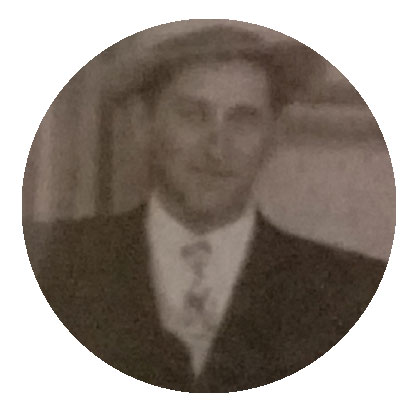
I’ll say it straight: My kids fight.
It’s normal, everyone’s kids fight, your kids fight too, right? I mean, I definitely remember fighting with my siblings when we were kids.
But we never fought in front of my grandfather. Not that we didn’t try. But he stopped us. He didn’t say much — just a word and a motion with his hand. As a kid, I certainly couldn’t interpret the look in his eyes. But it stopped us from fighting.
I have a vague memory of my mother explaining it to me in simple terms: “Zaidy’s siblings died in the war, that’s why it hurts him so much to see you all fight.”
Zaidy’s siblings died in the war. A simplified, sanitized, kid-friendly version of history. The truth is a little more detailed and much more devastating: My grandfather, Yissachar Dov ben Yaakov Granek, grew up in Czestochowa, Poland, one of eight children. The family ran a small farm, or maybe it was a sawmill, or a lumberyard. Until the Nazis arrived.
The Nazis were organized. They had lists. They knew the name of every Jew in Czestochowa and where they lived. And one day they knocked on the door of the house of the small Granek farm and demanded Yaakov Granek and his oldest son, 15-year-old Zev.
I can picture it in my mind: the knock at the door; the terror in the house; the tall, armed men in heavy black boots towering in the doorway; coming to take Zev away.
(Excerpted from Linked, Succos 5780)
Why Isn’t He Here?
Rabbi Mota Frank
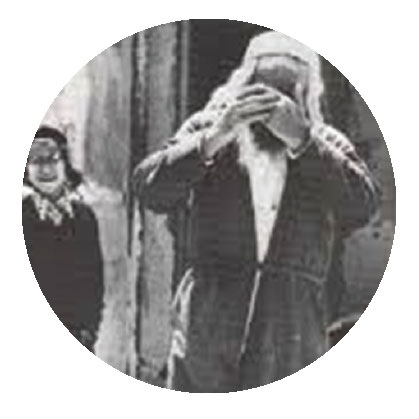
It seemed like a perfect shidduch.
My grandmother, Rebbetzin Fraida Shapira, was a daughter of Rav Yosef Kaddish Krishevsky, himself a talmid of the Chofetz Chaim. She married my zeide, the tzaddik Rav Shmuel Shapira, an outstanding Torah scholar and oved Hashem.
But as the years went on, she found herself supporting and raising a family while her husband danced in the heavenly realms, spending his days and nights learning Torah, davening and walking in the fields, being “misboded,” alone with his Creator.
It wasn’t easy for my grandmother. Well-meaning neighbors told her that she had to put her foot down, and insist that her husband be home at specified times and become a better provider for the family.
My grandmother went to discuss their suggestion with her father, Reb Yosef Kaddish, who heard her out.
“Tochter’l, my dear daughter,” he replied, “so many generations of Yiddishe kinderlach have learned ahavas Torah from the very same story — the account of Hillel Hazakein nearly freezing to death on the roof of the beis medrash, so determined was he to hear the shiur of Shmaya and Avtalyon inside. This picture is baked into Yiddishe hearts; it’s the image we’ve always used to convey to our children what it means to really be desperate for words of Torah."
(Excerpted from Linked, Succos 5780)
How Did You Hear the Harmony?
Rabbi Avrohom Neuberger
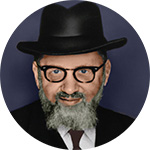
Igrew up in a remarkably unprejudiced home. We had an open-door policy — literally, the front door was never locked — and all sorts of guests came and went. It wasn’t so much hachnassas orchim or chesed per se; it was rather that my family appreciated people for who they were. There was no fear or aversion for the “other” whatsoever; all were welcome. As I grew older I noticed that this was true, in varying degrees, for much of my extended family as well… and also, that this middah was by no means universal.
My teenage self realized that many others did not feel that same connection to people different from themselves, and I guess this feeling naturally affected their hashkafos as well. The cognitive dissonance apparently generated a “shitah” — and they were much less open to a mesorah, derech, or hashkafah other than their own. As I grew up, I could not help but think: Why? Because you were born into that camp? And if you were born in another camp, would that way be correct? Isn’t it amazing Hashgachah pratis that so many people are born into the camp that just happens to conform exactly with the right — meaning your own — worldview?
In my family, all sorts of people were appreciated and valued, and that acceptance opened the window for us children to investigate and appreciate the value of others’ hashkafos.
(Excerpted from Linked, Succos 5780)
Where Did You Get Your Vision?
Barbara Bensoussan

As a child I was fascinated by family visits to my grandmother’s oldest sisters, Becky and Anna. The two widows lived one above the other in a tiny brick two-family. Becky, once a strawberry-blonde beauty, now had a graying bun and translucent skin, her blue eyes sharp behind glasses. Anna, with her puckered face and broad toothless smile, looked like those dolls made from dried apples. They conversed between themselves in soft Yiddish, kept toys in a closet and Yiddish newspapers on side tables. Their apartments were filled with the work of their ever-busy hands: quilts, afghans, doilies. My grandmother, their baby sister, relished these visits and the way her sisters cooed over her grandchildren.
To be there was to feel bathed in what psychologist Carl Rogers called “unconditional positive regard.” Years later, at my grandmother’s levayah, someone said the people in this family didn’t know from lashon hara. It simply never occurred to them to criticize or belittle other people. If someone began saying snarky things during a conversation, my grandmother would pointedly look away, as if removing herself. Or she’d say something nice about the person, to rehabilitate him. Shalom was everything. They couldn’t imagine family members feuding.
How had this mindset been created? That would be my question for my great-grandparents.
(Excerpted from Linked, Succos 5780)
Why Did You Leave?
Rachael Lavon

You died 50 years before I was a whisper, which makes you my great-great-grandfather and all of this ancient history. Yet the question lingers like mist, particles dispersing and gathering through the decades. I’m struck with a ripping sadness when I think of my six-year-old grandfather in 1928, standing on the dock in New York, round blue eyes fixed on the spot where your boat — the boat carrying his grandfather Kolonimus Kalman Staiman — became a shadow on the waves.
He had the very same question.
Why did you leave?
You’d won. Winners are supposed to stay, especially when you’d already traveled the arduous route from there. We still can’t pin down where “there” is. You lived in a time when borders wobbled in the breeze of inflamed egos and clicking boots, and countries’ names changed with every new sovereign. Is it overly millennial of me to say that it doesn’t really matter if you came from Belarus or Ukraine — only that you arrived in America to start anew?
(Excerpted from Linked, Succos 5780)
How Did You Hold On?
Leah Reisman
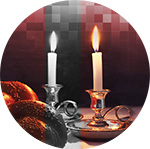
The grainy photograph looks like a scene straight out of Eastern Europe: a pious man with a full beard and big black yarmulke, a contemplative look on his face. But the image was captured in a world far removed from devout men swaying over prayer books and kerchiefed women salting chickens. It was taken in Pittsburgh, Pennsylvania, in the early 1900s, in the land of freedom and entertainment. It’s not a picture of a victim of the Holocaust, but a testament to a survivor of a different kind of decimation. It’s a photo of my great-grandfather, Yisroel Chaim Helenberg a”h, who came to America sometime between 1909 and 1912 and somehow managed to triumph in a spiritual wasteland.
My grandmother, his only child, told me that he worked in the scrap metal business, a job with little prestige and even less take-home pay, because it afforded him the ability to keep Shabbos. The family was so poor that sometimes all they had to eat on Shabbos was a little bit of herring. Zaidy Helenberg was a baal tefillah and baal korei who would travel to neighboring towns to offer his services. But his real calling was the chinuch of his daughter, Gittel Devorah, born in 1914, teaching her tefillah and Chumash and conveying the richness of the heritage so many other immigrants were throwing away.
(Excerpted from Linked, Succos 5780)
How Did You Set the Line?
Yaakov Lipszyc

The rabbi, a renowned speaker and massive talmid chacham, was talking about that issue again. The issue, as he put it. Intermarriage. As he spelled out the dismal dimensions, his pain was nearly tangible.
“Three out of four of our brothers and sisters are marrying out!” he screamed. “Seventy-five percent!”
And then, more softly, he reminded us: “It wasn’t always like this, you know? At some point, something, a link, broke off the chain. We must look back and see what happened there.”
That’s when I started thinking about my family, about my own story.
(Excerpted from Linked, Succos 5780)
How Can I Give Them Your Fire?
Benny Friedman
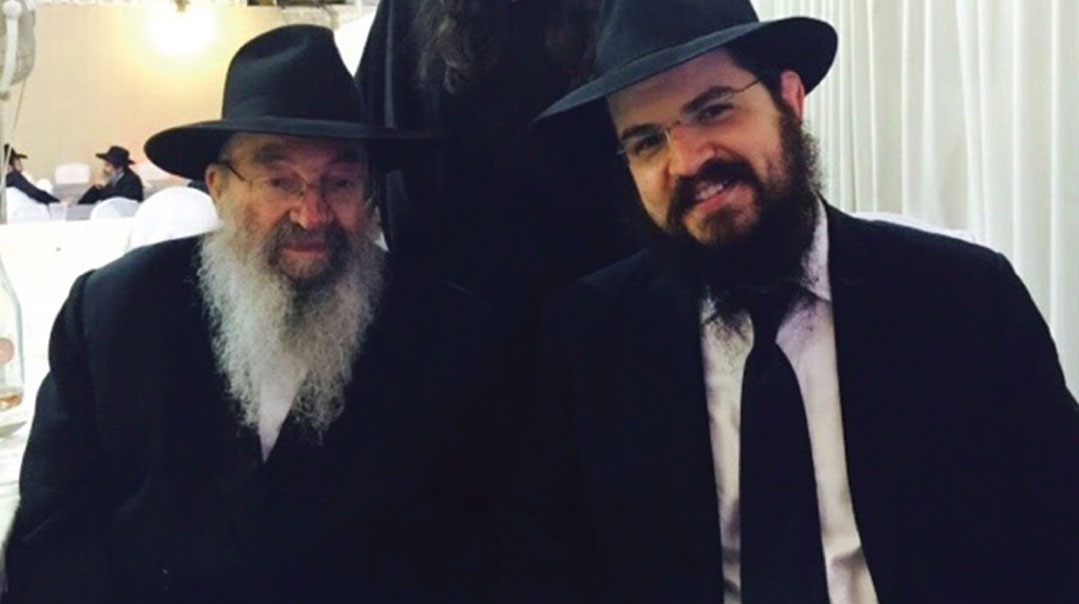
This summer, an older Lubavitcher chassid passed away, one of the last of a generation of those strong, courageous, resilient chassidim who were raised in Russia.
But Reb Boruch Gopin had another twist in his story. While many of the chassidim who came out of Russia had spent some time during their childhood learning in some clandestine yeshivah, or being warmed by farbrengens in a cellar, Reb Boruch had no such exposure. He was born in Kharkov in 1924, a time of utter darkness: Communism had spread its dark blanket across the Soviet Union, snuffing out any lone fires of inspiration and vitality.
From the age of four until the age of 16, he never saw the inside of a shul. He was sent to a Communist boarding school devoid of any spiritual influence. The war broke out when he was a teenager and he wasn’t really united with his family until he was 18 years old — an almost-grown child of Lubavitcher chassidim who couldn’t even read the alef-beis.
(Excerpted from Linked, Succos 5780)
Oops! We could not locate your form.








